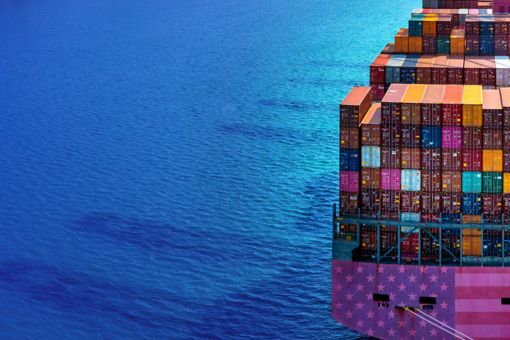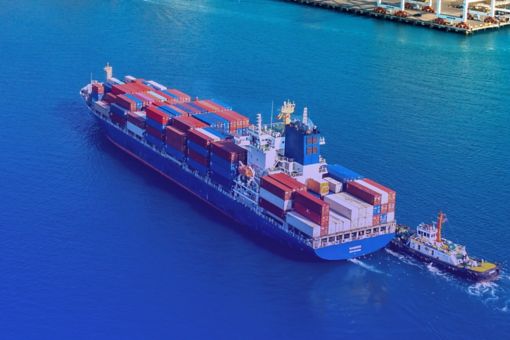Previous series article: The Tariff landscape under the new Trump Administration
April 23, 2025
By Tran Duy Binh and Huynh Nhan
------------------------------------------
A Seismic Shift in Global Trade
Recent trade policy shifts in the U.S. have introduced new challenges to the global economic landscape. An announcement on April 2nd regarding "reciprocal" tariffs led to market fluctuations and supply chain uncertainty. Cambodia, facing a staggering 49% tariff on its U.S. exports, stands among the most severely impacted nations.
A subsequent announcement on April 9th provided a 90-day window for negotiations, potentially allowing countries to adjust their tariff rates. An interim tariff was established, with specific rates for certain categories and countries.
Understanding Reciprocal Tariffs
Reciprocal tariffs are trade measures used to balance tariffs imposed by another country, aiming for equitable trade terms. Governments may adopt these measures to address trade imbalances and protect domestic industries.
The objectives behind these tariffs can vary. Potential goals include (1) encouraging the relocation of production to the U.S.; (2) pressuring trade partners to reduce barriers to goods; (3) generating revenue; (4) a combination of these goals.
This 90-day period presents an opportunity for Cambodian businesses to prepare for potential regulatory changes.
Immediate Response Strategies
For Cambodian exporters and manufacturers exporting to the U.S., even the interim 10% tariff could impact profitability depending on how risk is allocated in existing contracts. A thorough legal review of these agreements is essential to understanding available options and developing commercially viable solutions—preferably after confirming the U.S. buyer/importer's commitment to honoring contractual terms.
Key contractual elements requiring professional evaluation include:
• Governing law (likely Cambodian law or a U.S. state law)
• Applicability of the United Nations Convention on Contracts for the International Sale of Goods (CISG)
• International Commercial Terms (Incoterms)
• Force majeure provisions
• Material adverse change clauses
• Dispute resolution mechanisms
• Available remedies
Incoterms Analysis
The agreed-upon Incoterms are crucial as they determine which party is responsible for costs, including shipping, insurance, and, critically, import duties and tariffs. The specified Incoterm will significantly influence which party absorbs the financial burden of these new tariffs.
We recommend that the exporter chooses the appropriate Incoterms to ensure that the responsibility for paying tariffs falls on the buyer in the importing country. Terms like Delivered Duty Paid (DDP) place this responsibility on the seller, while terms like Ex Works (EXW), Free Carrier (FCA), Free on Board (FOB), Cost, Insurance, and Freight (CIF), and Cost and Freight (CFR) typically transfer this responsibility to the buyer.
Force Majeure Considerations
Cambodian manufacturers might instinctively look to force majeure provisions for relief. However, these clauses present significant challenges:
- While they may cover "acts of government," the foreseeability of these tariffs is questionable given their prominence in Trump's campaign platform.
- Performance remains technically possible, making impossibility arguments difficult.
- The core issue concerns financial burden allocation rather than performance impossibility.
Material Adverse Change Approach
To the extent a contract is already in place, the Material Adverse Change (MAC) clause may provide a better option for renegotiation or termination. It can be argued that these tariffs significantly raise costs and disrupt supply chains beyond what was initially agreed, warranting a review of terms to address the new economic realities.
For future contracts, Cambodian exporters should consider adding or revising the MAC clause to cover major changes in the importing country's trade policy, such as new or increased tariffs. This could allow the exporter to be excused from or suspend performance of contractual obligations if such situations arise.
Strategic Adaptations
After clarifying immediate options, parties should explore contract renegotiation strategies. Instead of relying on broad MAC clauses, consider specific tariff pass-through provisions to directly address new costs and responsibilities. Effective provisions might include:
- Cost allocation frameworks: For example, tiered structures where suppliers cover tariffs up to certain thresholds, with buyers handling the excess.
- Notification and documentation protocols: Establishing clear processes for communicating tariff impacts with supporting evidence.
- Flexible price adjustment mechanisms: These could include periodic renegotiation triggers, automatic adjustments with reasonable caps, or other tools that adapt to rapidly changing global market conditions.
If termination is necessary, parties should carefully assess financial implications, such as potential damages and penalties under the governing law. Any negotiated resolution should be formally documented through appropriate settlement instruments, with attention to potential tax consequences.
The Importance of Mitigation and Duty Savings Strategies
In the face of increased tariffs, companies must prioritize effective mitigation and duty saving strategies. The financial impact of additional reciprocal tariffs, compounded by existing duties, can significantly strain operational budgets and profit margins. Without proactive measures, businesses may face increased costs and disruptions in their supply chains. Businesses can alleviate immediate financial burdens and position themselves for long-term resilience and competitiveness in theglobal market by implementing appropriate mitigation strategies. In a rapidly evolving trade environment, these strategies are critical to maintaining cost efficiency, preserving market share, and ensuring business continuity.
Exporters who act decisively during this critical window will position themselves most advantageously for whatever permanent framework emerges under the new administration.
Speak with your KPMG Advisers today!
Having well-versed and experienced KPMG professionals assisting you in navigating the tariff shock will help reduce friction, risks, and associated transaction costs of exporting to the US market under current circumstances. Our KPMG services include, but are not limited to:
Tariff Impact Analysis
Staying on top of the impact of tariffs is key to making strategic decisions. We work closely with our U.S. Trade & Customs practice, which has designed the Tariff Modeler to assist companies in assessing the impact of tariffs. By analyzing your import data globally, we can help provide insights and develop strategies to mitigate the impact. Importantly, while an initial analysis is valuable, we believe these tariff pressures will persist. Therefore, we can provide ongoing trade data analytics so that you can gain access to tariff impact analytics globally with the latest tariff regulatory tracking.
Optimizing for Tariff Uncertainty
Managing disruption from tariffs requires a multifaceted strategy. By leveraging short- and long-term duty mitigation strategies, companies can optimize tariff liabilities and promote supply chain resiliency while enhancing their competitive edge in the global market.
We provide tailored tariff mitigation strategies and solutions that align with your specific business goals. Some potential strategies (immediate, mid-term, and long-term) may include:
| Legal Advice | Tax and Trade & Customs |
|
|
KPMG's Experts

Nhan Huynh
Partner
Head of Trade & Customs and Value Chain Management
KPMG in Vietnam
Nhan Huynh
Partner, Head of Trade & Customs and Value Chain Management, KPMG in Vietnam
Nhan has been a tax advisor in Vietnam for over 17 years, and he is the National Leader of KPMG’s International Tax and Value Chain Management practices. Nhan specializes in tax and customs advisory services, particularly in tax and duty planning and restructuring, tax efficient supply chain management, and tax dispute resolution and controversy services.
Nhan is responsible for providing regular tax and customs consulting services to many local and international clients. He has assisted many multinational companies on their investment structuring, corporate formation and reorganization, mergers and acquisitions, tax and customs planning and compliance.
Nhan has extensive hands-on experience in representing clients and dealing with local authorities on customs and taxation issues.
He has been invited to speak at forums and seminars on Vietnam’s inbound investment, customs and taxation.

So Dary
Partner
Head of Corporate Services
KPMG in Cambodia
So Dary
Partner, Head of Corporate Services, KPMG in Cambodia
Dary is a partner of a tax Practice, Corporate Services, Customs & Trading at KPMG in Cambodia. Dary has more than 18 years of experience advising and assisting clients to conduct trouble free business in Cambodia.
Dary has a diverse experience and works with clients across numerous business functions to ensure compliance with the laws and regulations in Cambodia. Dary oversees KPMG’s tax and corporate services and manages the delivery of a range of business solutions to clients which include:
- Taxes compliance and tax health check review
- Tax due diligence
- Tax advice on restructuring and tax planning strategy
- Accounting & Financial Management services
- Corporate governance and risk management

Tran Duy Binh
Director
KPMG Law in Vietnam
Tran Duy Binh
Director, KPMG Law in Vietnam
Binh leads the M&A practice in Ho Chi Minh City. He has over 13 years of professional experience in Vietnam and provides a wide range of legal services in areas including M&A, corporate & commercial services, dispute resolution and intellectual property.
Binh has assisted clients with M&A transactions from the initial term-sheet stage, through due diligence, to the drafting and negotiations of the transactional and other ancillary documents up to completion.
Prior to joining KPMG, Binh was with a leading international law firm in Vietnam.



